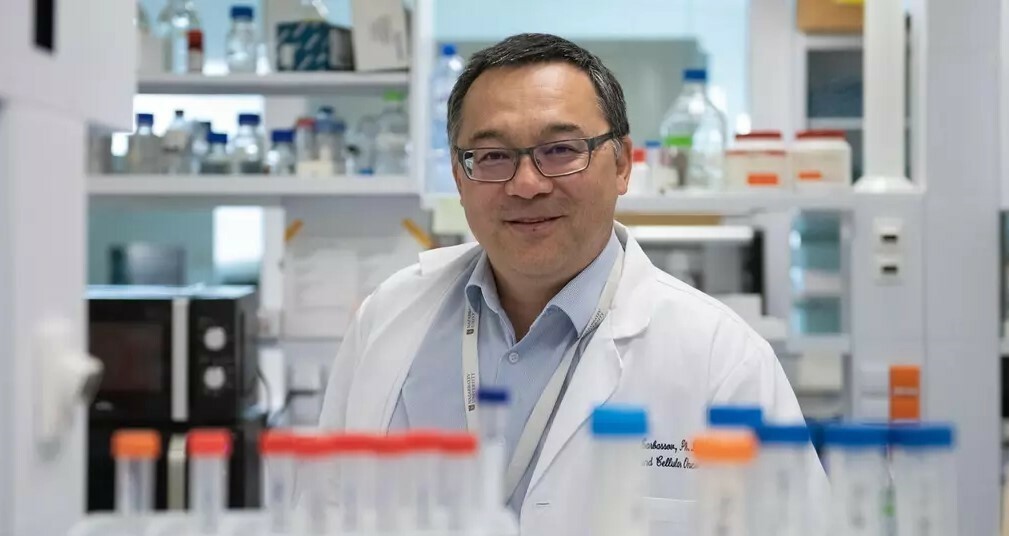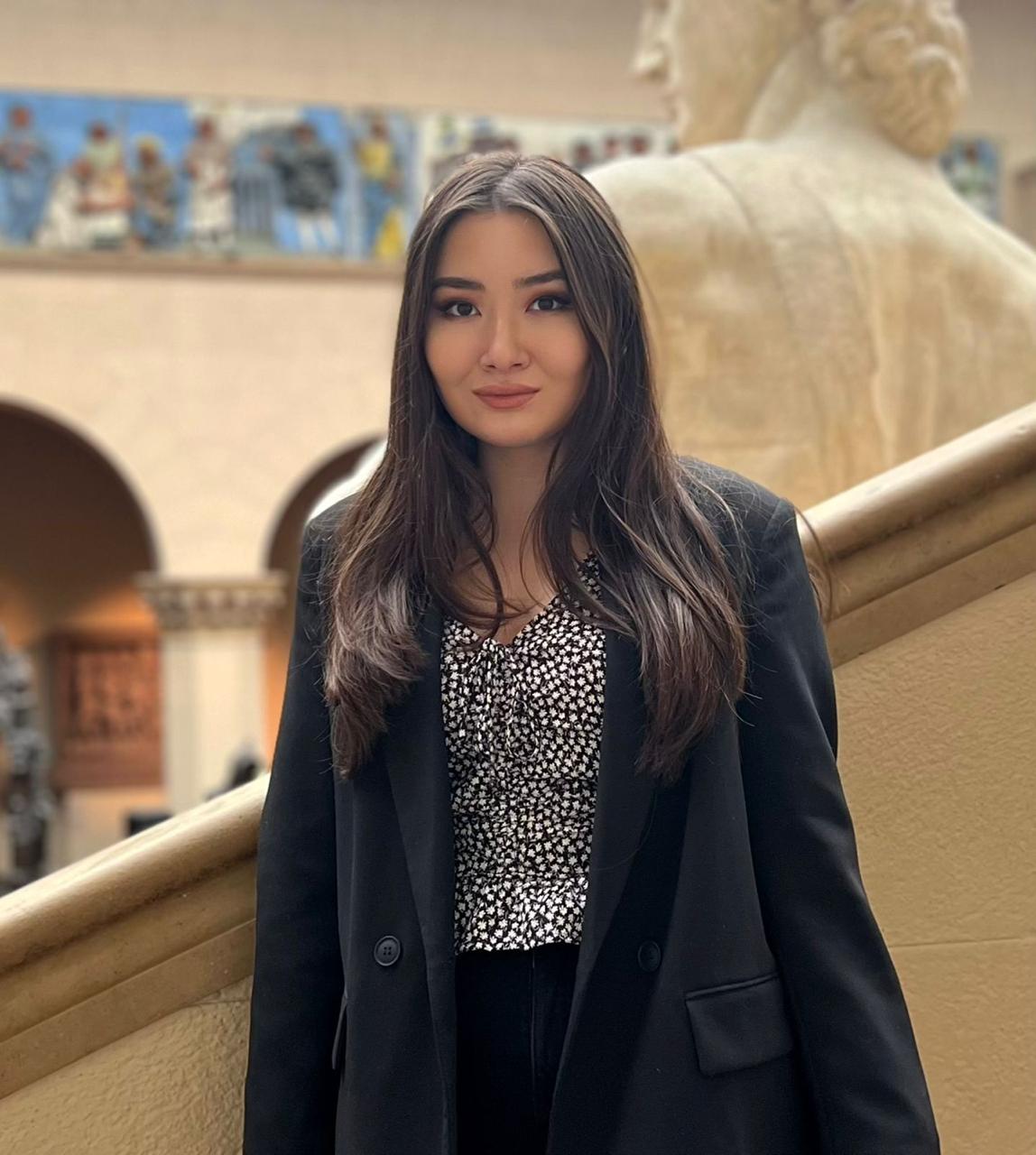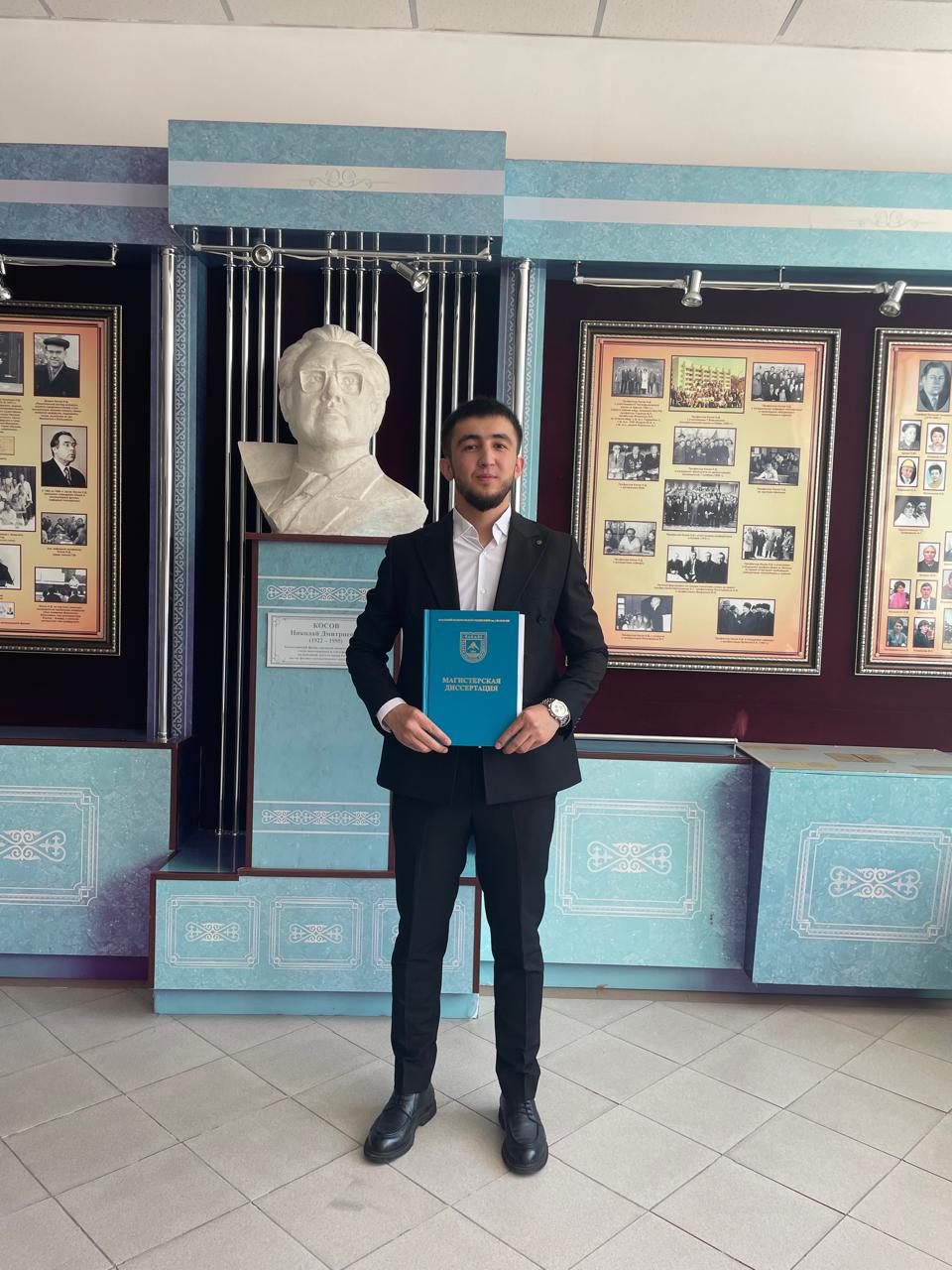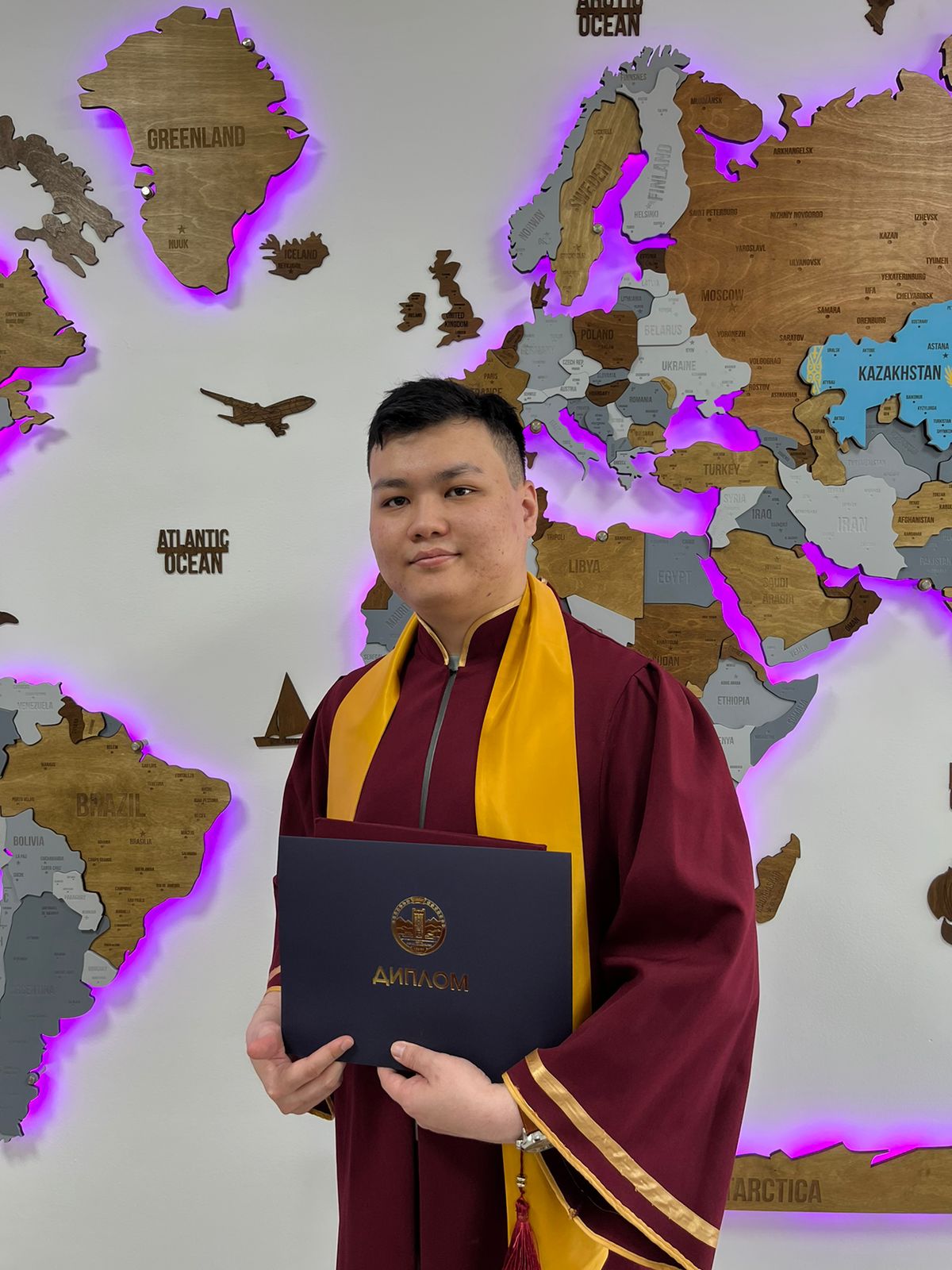
Sarbasov Dos Dzhurmakhanbetovich, a 1991 graduate of the Faculty of Biology, showed remarkable aptitude for scientific research early on. By his third year, he was already engaged in research under the guidance of Academician R.I. Bersimbayev of the National Academy of Sciences of Kazakhstan and Associate Professor M.M. Tairov in the Molecular Genetics laboratory. With Bersimbayev's support, Sarbasov had the opportunity to conduct research at Novosibirsk State University, a premier scientific institution in the Soviet Union. He delved into studying the hormonal regulation of cellular processes and intracellular signalling pathways there.
During his tenure at the university, Dos excelled academically and in his laboratory research, and he dedicated himself to learning foreign languages. This linguistic proficiency enabled him to participate in a student exchange program in the United States and subsequently enrol in a doctoral program at the University of Medical Sciences in Arkansas, Little Rock, in 1992. While pursuing his biochemistry and molecular biology studies, Dos focused on how insulin-like growth factors regulate muscle cell differentiation. He aimed to decipher how specific growth factors influence muscle cell differentiation. His dissertation research culminated in three published research articles, one featured in the prestigious Proceedings of the National Academy of Sciences.
He was instrumental in identifying and functionally characterising two separate mTOR complexes, utilising raptor and rictor proteins as adapters during his tenure. Through functional studies, the team elucidated how mTOR orchestrates cell growth by modulating protein synthesis and proliferation in response to growth factor signalling. This groundbreaking work significantly advanced our understanding of cellular anabolism's signalling pathways, which are vital for processing essential nutrients such as amino acids, glucose, and fatty acids.
Since 2006, Professor D.D. Sarbasov has held the position of a distinguished researcher and professor at the University of Texas MD. Anderson Cancer Center in Houston, Texas, where he leads the Laboratory for Molecular and Cellular Oncology. This centre is globally acclaimed as one of the foremost institutions for cancer research. Professor Sarbasov's research is pivotal in understanding the mTOR signalling pathway, specifically, its implications in nuclear transport and ribosome biogenesis, placing him at the cutting edge of biological science and biomedicine.
His contributions have been recognised through publications in esteemed journals such as Cell, Science, and Molecular Cell. As of April 2014, Google Scholar notes that his work has amassed over ten thousand citations, underscoring his stature as a highly acclaimed and globally recognised scientist.
Professor Dos Sarbassov has dedicated over 27 years of his career to the MD Anderson Cancer Center before returning to Kazakhstan in 2019. He now serves as the Director of the Astana National Laboratory and holds the position of Deputy Chairman for Research at the School of Natural Sciences and Humanities. His research primarily focuses on the nutrient-dependent regulation of cell growth and survival, and its deregulation in cancer. His significant contributions include advancing our understanding of the crucial role played by the rapamycin target in controlling cell growth across all eukaryotic organisms.
Currently, Professor Sarbassov leads a team at the Astana National Laboratory. In collaboration with oncologists from the Kazakh Research Institute of Oncology and Radiology, they are actively pursuing the development of an effective cancer treatment.
Other news


